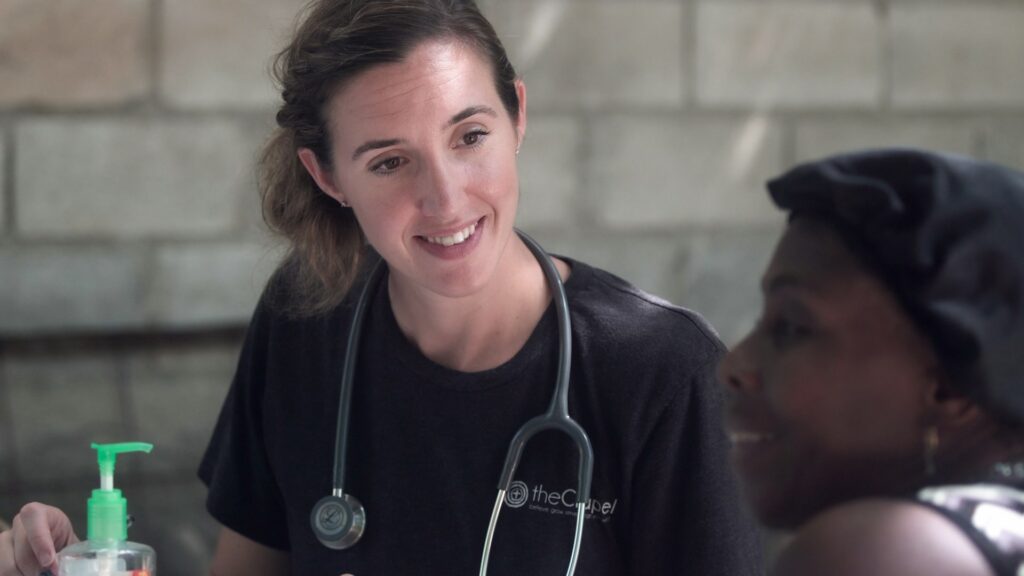
The concept of holistic health practices in nursing transcends the traditional treatment of symptoms, advocating for the care of the whole person—mind, body, and spirit. In the field of nursing, this approach is not just beneficial but essential, as it acknowledges the interconnectedness of various health aspects that contribute to a patient’s well-being. This article discusses how nurses can integrate holistic health practices into their routines, thereby enhancing patient care and fostering a more fulfilling professional experience.
Table of Contents
- 1 Here are some FAQ’s about holistic health practices in nursing:
- 1.1 What is holistic practice in nursing?
- 1.2 What are the 5 aspects of holistic health?
- 1.3 What are the 4 parts of the holistic approach to health?
- 1.4 What are the standards of holistic nursing practice?
- 1.5 How do you give holistic nursing care?
- 1.6 What is the holistic care plan of nursing?
- 1.7 What are the 5 pillars of holistic care?
- 1.8 What are the 5 examples of holistic?
- 1.9 What are the 4 quadrants of holistic health?
- 1.10 What is holistic assessment in nursing?
- 1.11 Why is Florence Nightingale’s theory considered a holistic nursing theory?
- 1.12 What is the holistic health model?
Understanding Holistic Health in Nursing
Holistic health is defined by its focus on the entirety of the individual rather than just the disease or condition. This method considers physical, mental, emotional, and spiritual factors that contribute to a person’s health. By adopting this inclusive perspective, nurses can offer more comprehensive care that addresses not only the immediate health issues but also the underlying causes and broader impacts on the patient’s life.
The integration of holistic practices in nursing is grounded in the belief that health is a dynamic balance of life energies that go beyond physical symptoms. It emphasizes preventative care and education, aiming to empower patients to take control of their health through self-awareness and self-care practices. Holistic health encourages a partnership between nurse and patient, wherein both work towards achieving optimal health outcomes.
The Role of Education in Holistic Nursing
Education plays a pivotal role in equipping nurses with the tools they need to implement a holistic approach. Advanced nursing programs, particularly online RN to BSN courses, are increasingly incorporating holistic health modules into their curricula. These programs prepare nurses not only in advanced clinical skills but also in the application of holistic practices. Courses might cover topics such as complementary and alternative medicines, the importance of nutrition and exercise, stress management, and the psychological aspects of patient care.
These educational experiences are crucial for developing a deeper understanding of how holistic practices can be harmoniously woven into standard medical care. They provide nurses with a broader array of tools to address patient needs, which is particularly important in our increasingly complex healthcare environment.
Key Holistic Practices for Nurses
Several holistic practices can be seamlessly integrated into nursing care. Mindfulness and meditation, for example, can significantly enhance the therapeutic environment, offering benefits such as reduced anxiety and improved pain management. Nurses can incorporate these practices into patient care by leading short meditation sessions before procedures or teaching patients breathing techniques to help manage stress and pain.
Yoga and physical therapy can also play a crucial role in holistic nursing care. These practices not only help improve physical strength and flexibility but also contribute to emotional and mental well-being. Nurses can recommend these activities to patients recovering from surgery or those dealing with chronic pain, helping them regain mobility and improve their quality of life.
Aromatherapy is another holistic practice that can be used in nursing care. Essential oils like lavender, chamomile, and peppermint are known for their therapeutic properties, including reducing stress, alleviating pain, and enhancing mood. Nurses can use aromatherapy in clinical settings to create a calming atmosphere, reduce patient anxiety, and improve overall patient experience.
Benefits of Holistic Practices in Nursing
The benefits of integrating holistic practices in nursing are profound. For patients, the use of holistic approaches can lead to improved outcomes in pain management, stress reduction, and overall satisfaction with care. These practices support the body’s natural healing processes and offer patients non-pharmacological options for managing their health.
For nurses, embracing holistic methods can enhance job satisfaction by providing more meaningful patient interactions and diverse care strategies. It also promotes a healthier work environment, as nurses are often at the forefront of experiencing job-related stress. Employing holistic self-care practices can mitigate burnout and improve mental resilience, enabling nurses to maintain a high level of care for their patients.
Overcoming Challenges
Despite the clear benefits, integrating holistic practices into nursing can encounter significant obstacles. Time constraints are a major hurdle in busy healthcare settings. Nurses often face packed schedules, making it challenging to incorporate new practices, especially those perceived as time-consuming like meditation or yoga sessions. Moreover, there can be skepticism from colleagues or institutional resistance, as traditional medical environments may prioritize conventional medicine and view holistic methods as less scientifically rigorous.
To navigate these challenges, nurses can start small by integrating brief, manageable holistic practices. For instance, a five-minute guided breathing exercise at the beginning of a shift can set a positive, calm tone for both patients and staff. Educating peers about the evidence-based benefits of holistic practices can also help in garnering support and reducing skepticism.
Another effective strategy is advocating for policy changes within healthcare institutions. Nurses can work with management to include holistic health practices as part of the standard patient care protocols, ensuring these methods are not merely optional add-ons but integral components of the healthcare delivery model.
As the healthcare landscape continues to evolve, the integration of holistic health practices in nursing not only enhances patient care but also supports the well-being of nurses themselves. These practices foster a nurturing and healing environment, crucial for the recovery and well-being of patients. They also contribute to a more satisfied and resilient nursing workforce, capable of facing the demands of modern healthcare with renewed vigor and compassion.
Holistic health practices stand out as not merely beneficial but essential in the modern nursing toolkit. They bridge the gap between conventional medical treatments and the nuanced needs of patients, catering to their physical, emotional, and spiritual well-being. By embracing a holistic approach, nursing professionals can ensure a more comprehensive, patient-centered care paradigm that respects and nurtures all facets of human health.
While challenges exist, the benefits of integrating holistic health practices into nursing far outweigh the hurdles. With education, advocacy, and a step-by-step approach to implementation, nurses can effectively incorporate these healing practices into their care delivery, paving the way for a health system that values and utilizes the full spectrum of healing sciences to foster better patient outcomes and healthier communities.
Here are some FAQ’s about holistic health practices in nursing:
What is holistic practice in nursing?
Holistic practice in nursing is an approach that focuses on treating the whole person, including their physical, emotional, social, economic, and spiritual needs. It emphasizes the connection between mind, body, and spirit and aims to promote overall wellness and healing.
What are the 5 aspects of holistic health?
- Physical
- Emotional
- Social
- Spiritual
- Intellectual
What are the 4 parts of the holistic approach to health?
- Physical Health
- Mental Health
- Emotional Health
- Spiritual Health
What are the standards of holistic nursing practice?
- Assessment
- Diagnosis
- Outcomes Identification
- Planning
- Implementation
- Evaluation
How do you give holistic nursing care?
Holistic nursing care can be given by:
- Establishing a therapeutic relationship with the patient
- Addressing all aspects of the patient’s life
- Encouraging patient participation in care
- Using complementary and alternative medicine (CAM) as appropriate
- Educating the patient on health and wellness
- Providing compassionate and empathetic care
What is the holistic care plan of nursing?
A holistic care plan in nursing involves creating an individualized plan that addresses the comprehensive needs of the patient. This includes considering physical, emotional, social, spiritual, and mental health aspects to promote overall well-being and recovery.
What are the 5 pillars of holistic care?
- Physical Wellness
- Emotional Wellness
- Social Wellness
- Spiritual Wellness
- Intellectual Wellness
What are the 5 examples of holistic?
- Meditation for stress reduction
- Yoga for physical and mental health
- Nutritional counseling for dietary health
- Aromatherapy for relaxation and healing
- Acupuncture for pain management
What are the 4 quadrants of holistic health?
- Physical Health
- Mental Health
- Emotional Health
- Spiritual Health
What is holistic assessment in nursing?
Holistic assessment in nursing is a comprehensive evaluation of a patient’s physical, psychological, social, and spiritual needs. It involves gathering information to understand the patient as a whole person and to create a personalized care plan.
Why is Florence Nightingale’s theory considered a holistic nursing theory?
Florence Nightingale’s theory is considered a holistic nursing theory because it emphasizes the importance of the environment in patient care, including factors such as clean air, water, and adequate nutrition. Her approach looked at the overall context of the patient’s life and health.
What is the holistic health model?
The holistic health model is an approach to health care that considers the whole person and how they interact with their environment. It emphasizes the connection of mind, body, and spirit and the need for harmony and balance to achieve optimal health.
